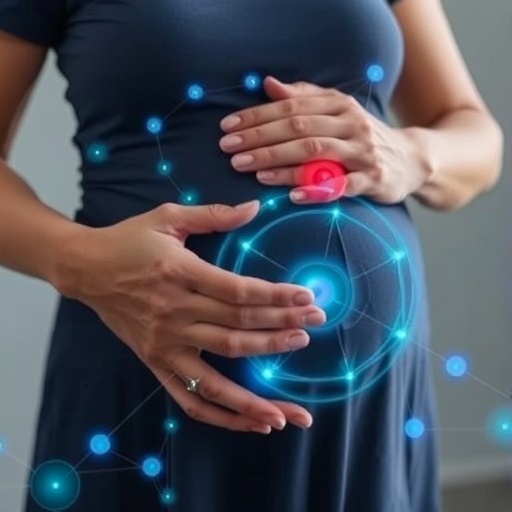In a groundbreaking study published in the Journal of Studies on Alcohol and Drugs, researchers have demonstrated that when trained on medically accurate data, generative AI models like ChatGPT can serve as a reliable source of information for pregnant women struggling with opioid use disorder. This research, originating from Rutgers University, indicates that such technology could significantly enhance the way individuals seek and receive medical assistance for conditions that may be deemed stigmatizing or sensitive.
In a world where the Internet and AI are increasingly intertwined in our daily lives, the research sheds light on a pressing need for trustworthy health information, especially for vulnerable populations like pregnant women. As technology advances, more individuals are turning to online resources for health advice, amplifying the excellence of this research. The stakes are incredibly high in areas like opioid use during pregnancy, where delayed action or misinformation can lead to dire health consequences, not just for the expectant mother, but also for the unborn child.
Drew Herbert, the lead author of the study from the University of Missouri’s Sinclair School of Nursing, remarks on the urgency of reliable health advice, especially in the context of opioid dependence during pregnancy. “A sense of urgency surrounds this area of medical care; inaccurate information or delays in treatment can be harmful,” he states. As many health discussions often carry an element of stigma, the ability to seek information privately through AI platforms may empower individuals without the fear of judgment.
To conduct this research, the team utilized a detailed persona named “Jade,” a hypothetical pregnant woman experiencing challenges with opioid addiction. This persona was instrumental in structuring conversations that would reflect real-world queries faced by similar individuals. The researchers fed the AI model prompts that involved clinical scenarios, asking direct questions about treatment options and the process of finding a healthcare provider. This method successfully integrated personal context, demonstrating how generative AI could simulate a clinician with genuine empathy and understanding.
The researchers recorded and analyzed 30 distinct conversations with ChatGPT, evaluating its responses against a rigorous rubric designed for medical accuracy and safety. Astonishingly, the results revealed that nearly 97% of the generated responses were not only safe but also aligned with established medical protocols. ChatGPT provided information about potential treatments, including medication-assisted therapies, and guidance on finding healthcare professionals, showcasing the technology’s potential in bridging gaps within the healthcare communication landscape.
One of the study’s more surprising findings was the consistency of the AI’s responses, which adhered closely to clinically accepted practices. Herbert acknowledges this success by stating, “The level of accuracy far exceeded our initial expectations.” However, the authors also exercise caution. They recognize that the efficacy of AI-generated information is largely dependent on the specificity of the prompts provided, indicating that generic queries may yield less reliable results.
Looking forward, the researchers emphasize that this study is less about creating entirely new healthcare solutions and more about leveraging existing technology to improve patient outcomes. Fine-tuning the AI model represents a significant next step, necessitating further studies to understand how AI can be safely implemented in real-world settings. Testing in field-based environments is essential to ascertain the effectiveness of generative AI as a tool for health advice.
Further exploration is required to ensure that the AI helps users navigate their healthcare pathways while reinforcing the importance of professional medical consultations. The goal is to harness innovative technology in a way that complements existing care systems, making it easier for individuals to seek assistance without the burden of stigma.
Overall, this study stands as a testament to the transformative potential inherent in AI technology when it comes to healthcare. It emphasizes the capability of generative models to deliver safe, reliable, and clinically relevant information that can empower individuals to take control of their health challenges confidently. As society continues to grapple with the complexities of opioid addiction and its impacts on pregnant women, the findings of this research may serve as a beacon for advancing communication, understanding, and treatment options in the field.
The ongoing evolution of AI holds promising prospects for mental health, substance use disorders, and various other medical fields, suggesting that as generative technology matures, it could become a staple in the healthcare environment. The integration of such systems in people’s lives would reshape the way they access, understand, and engage with health information in an increasingly complex medical landscape.
As we stand at the precipice of this technological revolution in healthcare, it becomes imperative to not only harness the power of these tools but to do so in a responsible manner. With ongoing iterations and deeper evaluations of AI capacity, we may find ourselves entering a new era of medical care that prioritizes safety, accessibility, and the informed autonomy of every individual seeking treatment for complex health conditions.
Subject of Research: People
Article Title: Generative AI-derived information about opioid use disorder treatment during pregnancy: An exploratory evaluation of GPT-4’s steerability for provision of trustworthy person-centered information
News Publication Date: 23-Oct-2025
Web References: http://dx.doi.org/10.15288/jsad.24-00319
References: Herbert, D., Westendorf, J., Farmer, M., & Reeder, B. (2025). Generative AI-derived information about opioid use disorder treatment during pregnancy: An exploratory evaluation of GPT-4’s steerability for provision of trustworthy person-centered information. Journal of Studies on Alcohol and Drugs, 86(6), 894–905.
Image Credits: Credit: Journal of Studies on Alcohol and Drugs
Keywords
Generative AI, opioid use disorder, pregnancy, healthcare technology, ChatGPT, medical advice, clinical practice, addiction treatment, online health information, stigma, patient empowerment, health communication.
Tags: addressing opioid crisis in pregnancyAI treatment guidance for opioid use disorderChatGPT in medical adviceGenerative AI in healthcareonline health resources for vulnerable populationsopioid use during pregnancyreliable health information for pregnant womenRutgers University research on AIsafe treatment options for opioid dependencestigma around opioid usetechnology in maternal healthurgent need for trustworthy health information





